When those long languid days basking in the warmth of the sun arrive, the moment has also come for encouraging Pittsburgh home-owners to pest proof their homes.
Summer is a beautiful season in Western Pennsylvania. Outdoor activities, such as barbecues and other get-togethers, are very common during this time of year, but fun can be greatly hampered by unwanted summer critter intruders such as: ants; stinging insects; flies and mosquitoes.
According to Missy Henriksen, vice president of public affairs for The National Pest Management Association (NPMA): “It can be a challenge to avoid pests when spending long periods of time outdoors, as some are attracted to typical barbecue fare and others are active at night when people tend to fire up the grill. If people follow some simple tips, like wearing insect repellant and keeping food covered, they can enjoy the summer season without worry.”
The following article provides a list of key pests to watch out for here in Allegheny County as well as 12 key efforts to help pest-proof your Summer!
The Proliferation Of Pittsburgh Summer Pests
Insect pests abound everywhere in the summertime and each region of the country has its own array of critters that prefer their particular locale. In Pittsburgh and Western Pennsylvania the major culprits are: mosquitoes, ticks, chiggers, pavement and house ants and German cockroaches. Each is examined more thoroughly below.
Mosquitoes And The Diseases They Can Spread
One of the most common warm-weather pests, mosquitoes can literally ruin summer fun. While their itchy bites are a nuisance, they also pose serious threats to human health and can transmit via their bites diseases such as: malaria; West Nile Virus; Chikungunya virus; the Zika Virus and Dengue fever. Due to the fact that they are vectors for serious human and animal infectious diseases, some experts claim that mosquitoes are the most dangerous creatures on Earth.
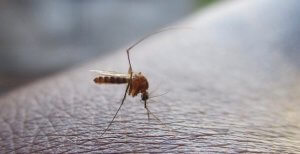
Male mosquitoes are not dangerous, but the females have the biting mouthparts necessary for feeding off humans and animals. They require as little as one inch of of stagnant water to lay their eggs and reproduce. Residential trouble spots include: flower pots; kiddie pools; clogged gutters; ponds and birdbaths.
Mosquito repellent should be applied whenever spending time outdoors, especially during dusk and dawn. Dr. Phil Nixon, University of Illinois Extension entomologist, suggests using mosquito repellents with DEET (sold as the product, Off). Spray exposed skin and the areas around waistbands, cuffs, shoe tops and shirt buttons. If you plan on being outdoors for several hours, reapply the repellant.
It is prudent for Pittsburgh homeowners to contact the pest control and pest management experts at Pestco Professional Services to assess afflicted residential properties, as there are likely to be breeding grounds not evident to the casual observer.
Odorous House Ants And Pavement Ants
These are the two most prevalent ant species in Pittsburgh and Western Pennsylvania. Neither pose a public health risk, but they can both contaminate food. Odorous house ants love sweets, especially honeydew melon, and can usually be found near moisture sources.
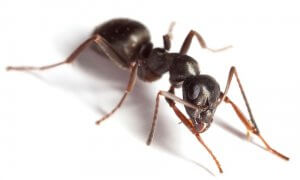
Miniature ant trails by kitchen doors is a turn off for both home owners and visiting guests. Pavement ants will eat almost anything, including other insects. They are found in walls and insulation or in pavement cracks. Eliminating standing water and cracks around the house can help keep ants away.
German Cockroaches And The Bacteria They Spread
Cockroaches in general thrive in the summer heat. The most common species, the German cockroach, cannot tolerate colder temperatures and prefers to breed in warm, humid spots in a residence, such as bathrooms and kitchens. Researchers believe that roaches can sense the humidity in the air, and they will eat anything they can find. They enter homes and office buildings via cardboard boxes, grocery bags and second-hand appliances. They are known to spread at least 33 diverse types of bacteria, seven human pathogens and six kinds of parasitic worms.
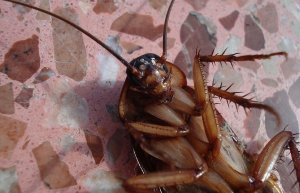
Due to the fact that cockroaches do not usually emerge during the daylight hours, it is very easy for a home owner to miss the size of a significant infestation. Once noticed, however, professional help from the pest-management and pest-control experts will be required.
Black-legged Deer Ticks
These tiny critters, which are the size of a sesame seed, are very dangerous to human health because they are vectors of Lyme disease. Their size makes them difficult to see. Pennsylvania has led the nation in confirmed cases of Lyme disease for three straight years, and for the first time, black-legged ticks (aka deer ticks) have been found in all of the state’s 67 counties. According to the Center for Disease Control, more than 10,000 Lyme disease cases have been reported.
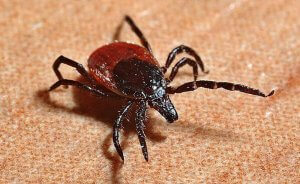
Recent research indicates that pediatric Lyme disease cases have significantly increased over the last decade in western Pennsylvania. According to the National Pest Management Association (NPMA): “Thanks to residual winter moisture and predicted rain ahead for most of the U.S. this spring and summer (2019), pest populations are expected to spike earlier than usual.”
An Important Study About Black-Legged Ticks
The Pennsylvania Department of Environmental Protection is currently conducting a five-year environmental surveillance of Black-legged ticks across the state. It began last year as part of a program initiated by the Pennsylvania Lyme Disease Task Force to challenge the growing incidence of Lyme and other tick-borne diseases.
Beware of telltale red bull’s eye rashes that are known to often surround tick bites. If you suspect a tick has bitten you or if you fall ill after being bitten by a tick, do not hesitate to seek immediate medical attention. If you notice a tick on your body, the sooner you remove it, the better.
Wear gloves and use tweezers to grab the tick as close to your skin as possible and remove the head and mouthparts. Pull up with gentle but steady pressure and do not twist. Never try to remove a tick with a hot match or petroleum jelly, as this could cause the insect to regurgitate infected fluids into the wound.
Chiggers – And Their Bites
Chiggers are tiny bugs that are smaller than the point of an average pencil. They are mites rather than insects and are somewhat related to spiders. They like high humidity, tall grass, vegetation and woody areas. Although their bites don’t transmit diseases, they cause pain, swelling and hives.
They excrete digestive enzymes onto your skin that work as feeding tubes as they ingest partially digested skin cells. Their primary preference for food sources are birds and reptiles, but they are opportunists, and humans will do if nothing else is available. According to some war veterans deployed in Afghanistan, Asian chiggers both feast on and prefer human flesh.
All chiggers prefer temperatures between 77 and 86 degrees. and will die if numbers reach the lower 40s. Constantly in motion, chiggers can cover a human body quickly, and they are known to climb over clothing in search of a spot where they can insert their mouth parts. Chigger bites are usually found around the ankles, the back of the knees, in the crotch area and under arms.
Biting Flies – Black, Deer And Horse Flies
Flies can be a problem anywhere, but they love large population centers, and seek habitats in cities such as Miami, Pittsburgh, Cleveland, New York. There are three species of biting flies that plague Western Pennsylvania when the summer arrives. They include: Black flies; Deer flies and Horse flies.
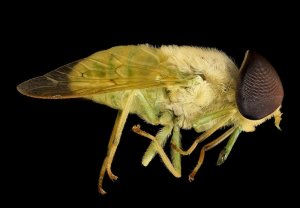
Black Flies – And The PA Suppression Program
Combatting black fly populations in spring and summer months, the Pennsylvania Black Fly Suppression Program uses sustainable methods to monitor and treat approximately 1,700 miles of 48 Pennsylvania rivers and streams.
Biologists and student interns from the Department of Environmental Protection (DEP) conduct black fly monitoring, laboratory identification of samples, data entry, treatment operations and the management of aerial spray contracts.
The program conducts operations in 35 counties with over 6.4 million residents, providing relief from adult black flies so residents and tourists can fully enjoy outdoor recreational activities in Northern and Western Pennsylvania.
Disease Carrying Deer Flies
These flies are found all over the world, and 45 species call the state of Pennsylvania home. Closely related to horse flies, they are slightly smaller in size and range from 5 to 12 mm long. They are black, yellow and black and sometimes gray in color, and often have abdominal stripes such as those found on bees.
Female deer flies cannot produce viable eggs without a blood meal, and the bites of several species transmit a number of diseases including: anthrax, tularemia, equine infectious anemia, anaplasmosis, hog cholera and Lyme disease.
Horse Flies – The Bane of Livestock
Horse flies are the bane of livestock on farms in Pittsburgh and Western PA. Females do the biting and their relentless attacks can actually result in reduced weight gain in some animals. These flies are also known to bite humans if no animals are available. Black to dark brown in color with green or black eyes, these flies cause panful bites with their sharp mouth parts that function like tiny knives slashing into skin like a pair of scissors cutting fabric.
Horseflies prefer hot, sunny weather. Prevention is minimal, as no one can affect the weather, but planning outside time in the early morning or evening and on breezy days can help. They don’t like shade and disappear after dark. Letting horses graze after the sun sets can help to avoid painful bites.
Stinging insects – Yellow Jackets, Wasps And Hornets
Often people walk rather briskly away from Yellow Jackets, wasps and hornets that abound in populations during the summer months. Yellow jackets particularly will hover anywhere there is food, whether it is a sweet and sugary fruit or soda pop, or protein such as meats and cheeses. Yellow jackets are social insects that can sting multiple times, and live in colonies that can contain as many as 4,000 insects.
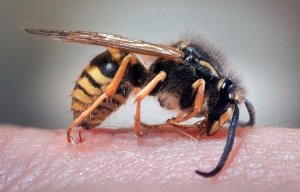
If you have a nest on your Pittsburgh property, it is very important that you call our teams at Pestco (412-252-5200) for help in removing it. Wasps and hornets also pose a danger, and their nests in attics, and under eaves must be eradicated as soon as possible
Twelve Important Pittsburgh Pest Prevention Tips
They say in the world of sports that the best offense is a good defense. This axiom also works very well when dealing with summer pests in Pittsburgh and western Pennsylvania. Below are twelve tips to help keep invasive summer insects away from your residence.
-
- According to the Centers for Disease Control (CDC), it is possible to keep many types of bugs away by wearing an insect repellent that includes a minimum of an EPA sistered active ingredient like 20% DEET or picaridin.
- Practice good kitchen sanitation. Make food scarce for insect intruders by keeping a clean kitchen. Empty the garbage frequently, and wipe down counters after you cook. Store food in tightly sealed plastic, metal or other pest-proof containers. Don’t leave out dirty dishes, especially overnight.
- Due to the fact that mosquitoes can sense sources of carbon dioxide, odors and temperature when seeking a blood meal, home owners and family members should keep their skin covered when outside.
- Blocking up any cracks or open spaces around the foundation of your home and insuring that there are no holes in window screens will help to prevent mosquito ingress. Enlist the aid of the pest management and pest-control specialists to help you develop a working agenda that will eradicate any conditions on your property that may be attracting mosquitoes.
- Keep your backyard tick-free by cutting grass low. Remove weeds, woodpiles and debris, which can attract insect pests.
- Stack firewood and landscaping bricks away from the home. Inspect items made of cardboard, wood and bamboo, which can provide both transport and food for roaches and other pests.
- Wear long pants, long-sleeved shirts and closed-toe shoes when outdoors, especially in wooded areas or tall grasses.
- If you are in a chigger-infested area, do not wear shorts, open shoes such as sandals or short-sleeved shirts. Instead, opt for long-sleeved shirts, long pants, heavy socks, leather shoes and cotton gloves. Tuck your pants into your socks.
- Add citronella candles to your deck or patio as they can help minimize the presence of mosquitoes.
- Due to the fact that chiggers love trees, shrubs and a moist environment, keeping your lawn mowed regularly can help reduce their presence.
- Most biting flies rest on low vegetation as they wait for a host. Avoid outdoor activity during peak biting time. Home owners can reduce the number of biting flies in their backyards by pruning shrubs and mowing weedy areas often.
- Eliminate potential bug infections around your home by fixing leaky pipes, clearing clogged gutter and keeping attics and crawl spaces ventilated.
Natural Remedies To Repel Summer Pests
While it is likely that most residences dealing with insect infestations will require professional pest-control and pest-management aid from the expert technicians, fighting insects by using their natural enemies, a concept known as integrated pest management, can limit populations and serve the balance of nature to some degree.
For example, many songbirds eat insects. In the case of deer flies, their eggs fall victim to several species of wasps. Many birds (especially swallows and flycatchers) eat adult deer flies.
Home owners should encourage sparrows, chickadees and cardinals to their backyards and supply their gardens with special varieties of suet cakes that won’t melt in warm weather. They should also place-bird-houses on their property. Consider a gecko (not the one on television commercials) as a family pet, for believe it or not, just one has the bug killing potential of an application of insecticide.
Pestco Professional Services Pest Control Solutions
We have been both a leader and a pioneer within the pest-control and pest management industry for more than seven decades.

Our stellar reputation for superior customer service has earned us the trust of a respected clientele that is spread across all of Pittsburgh and Western Pennsylvania. We can help residents deal with the onslaught of insect invasions that can ruin summer fun for Pittsburgh residents.
So call our team today for peace of mind tomorrow — (412) 252-5200
Final thought about insects: I don’t care how big or small they are, insects freak me out. ~ Alexander Wang
 Over 300 Reviews
Over 300 Reviews 